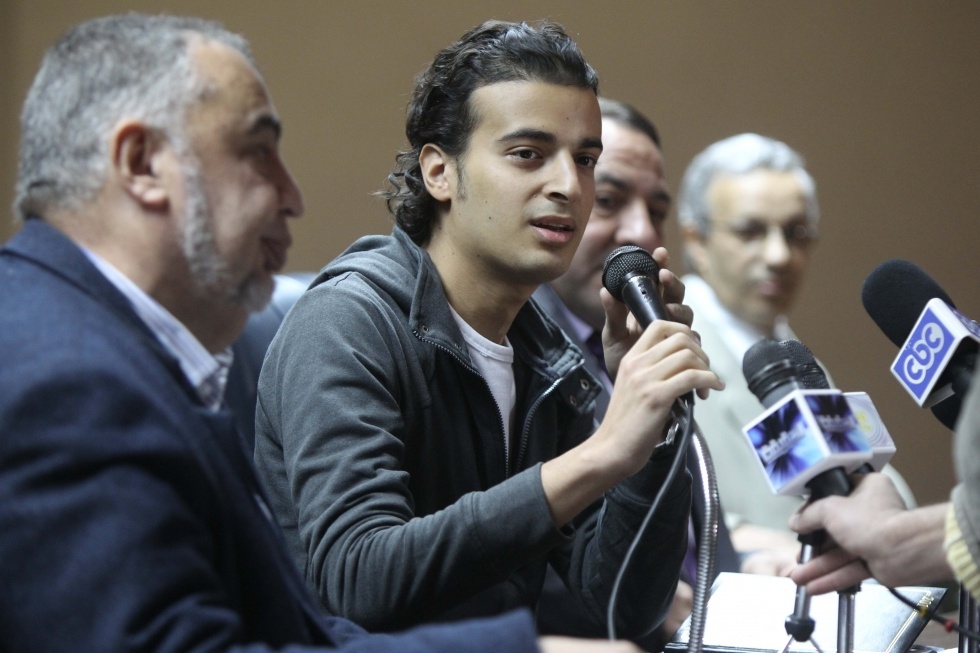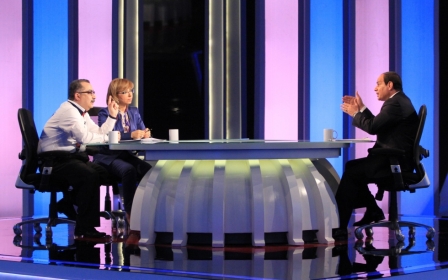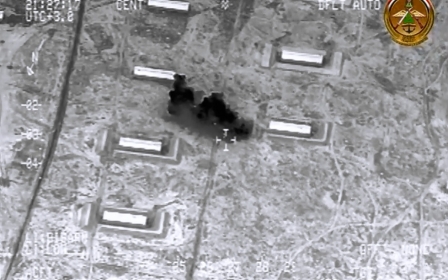Egypt to fight 'destructive ideas' through surveillance

"A guy logs on to Facebook or Twitter, finds something that agrees with his politics, and if he can't find anything, he just expresses himself," says 23-year-old Mostafa from Giza. For young Egyptians pitted against the state, social media can provide a lively, irreverent and democratic political space away from the increasingly familiar spectre of the riot van or prison cell.
However, now Egypt's Ministry of Interior is preparing an offensive against "destructive ideas" through a stepped-up surveillance programme, aimed at social media and private communications. Interior Minister Mohamed Ibrahim recently told Egyptian media that the system was "necessary to combat terrorism and protect national security…similar to that used in the US or the UK to protect their national security."
According to the ministry, a new surveillance programme – the so-called Social Networks Security Hazard Monitoring (SNSHM) system – will combat terrorism and defend national security. However, web freedom and privacy advocates, as well as Egyptians online, are concerned that monitoring will go much further than that.
Indeed, digital rights and security researcher Ramy Raoof claims that Egyptian surveillance will effectively mirror the National Security Agency's hugely controversial surveillance programme (PRISM) – by trawling public and private communications and storing reams of information, all in the name of security, stability and President-Elect Abdel Fattah al-Sisi's war on terror.
"They want to be able to monitor all public content and private content and avoid any kind of surprises…or avoid any sort of positions or opinions that they're not aware of," explains Raoof. "Technically speaking, it's almost copying PRISM in its functionality." The Ministry of Interior will collect masses of content, dredging the Egyptian internet and storing and analysing the findings, a tactic Raoof calls "expansion on the tools they already have."
And yet the aims of Egypt's SNSHM system are apparently more far-reaching than that. While the new tactics have largely been presented as part of the ongoing crackdown against any form of dissent, the ministry is also setting its sights on online activity deemed immoral and disrespectful. One of the online vices the government named in an official document was “sarcasm”.
According to ministry tender guidelines leaked to the press on 1 June, surveillance through SNSHM will combat "destructive ideas" dangerous to Egyptian society, warning of the "strong effects the networks [have] on users, particularly juveniles and youths" – an indication as to the sorts of Egyptians who may be targeted according to the new law.
This includes standard security-minded concerns such as "encouraging extremism, violence and dissent" and "educating methods of making explosives and assault, chaos and riot tactics." However, 'ideas' more open to interpretation are also named – "sarcasm; using inappropriate words; calling for the departure of societal pillars" and "taking statements out of context." Online activity seen as insulting to religion, public morality and highly coveted political stability is highlighted.
The guidelines also suggest that monitoring communications on WhatsApp and Viber "will be a plus" for the future.
On Monday, ministry officials announced seven foreign companies had offered proposals to the Egyptian government to assist with surveillance of social media websites. They did not name the companies involved.
In the past, Egypt's security apparatus were in contact with British tech firm Gamma International, responsible for Trojan-style surveillance software known as Finfisher. The programme allows authorities to inhabit computers and then monitor exactly how that computer is used, albeit on a targeted basis.
That deal-in-the-making came to light after activists got hold of paperwork of a tech proposal – not unlike the seven supposedly received this year – from inside Cairo's State Security Investigations (SSI) service headquarters. Alongside police batons and torture equipment, activists found papers detailing a free trial offered by Gamma International to the Egyptian security apparatus to introduce Finfisher. This "high-level security system" would give authorities "full control" of the computers of "targeted elements."
Egypt is known to have used other surveillance software: Bluecoat ProxySG, introduced in August 2012; and Remote Control System (or "RSC") surveillance between March 2012 and October 2013.
"They have already been practising different scopes of surveillance," says Raoof. "They might punish me or you for online content, they might not; but what they want to know is what you're saying, what you're doing, what you're friends are doing. Whenever they need to punish you, they then have all this to do it."
Others suggest the ministry may not have the capability to employ blanket surveillance over the internet.
"When you read the tender…they mention Google as a social network," says Eva Blum Dumontet from Privacy International. "What that kind of reflects is that they have no idea what they're talking about." The same could apply to intended surveillance of privation communications. "Monitoring something like Viber and WhatsApp would require a completely different infrastructure."
Still, the threat is real – perhaps most of all for young Egyptians, like Mostafa and Abdel Aziz, who are turning to the internet more for politics at a time when street protests can quickly attract violent responses from the police.
"If [someone] goes on an April 6 page, or whatever movement he's into, and he likes that page, that's exactly the kind of data that's going to mark him," explains Blum Dumontet. "Typically for these people this is very problematic," as opposed to leading activists, who may well be on the state's radar already. "The followers who are liking and sharing, they're the ones who are really going to be exposed by this."
The Interior Ministry's own guidelines suggest this is not just about activism, however. Recent Egyptian social media highlights – including the anti-Sisi "Vote for the pimp" hashtag or the mockery of an apparently over-tanned addressing the nation after this month's presidential elections – could potentially fall under the category of "dangerous ideas." In the age of military chief-turned-president, Sisi, this kind of irreverent and satirical online activity could now be more problematic.
And so Egypt's new internet restrictions could potentially put people like Abdel Aziz, another Egyptian in his 20s from Giza, at risk.
"We are criticizing more and more online," he says. Abdel Aziz, who does not identify with any group or political movement, describes social media as a place to withdraw, now that street-level dissent is so risky. He is not ready to give up that space.
"Those of us who still believe in our ideas, we are always talking to each other about politics online, and the streets remain the same."
"They want us to be afraid…But they will not stop us."
New MEE newsletter: Jerusalem Dispatch
Sign up to get the latest insights and analysis on Israel-Palestine, alongside Turkey Unpacked and other MEE newsletters
Middle East Eye delivers independent and unrivalled coverage and analysis of the Middle East, North Africa and beyond. To learn more about republishing this content and the associated fees, please fill out this form. More about MEE can be found here.




